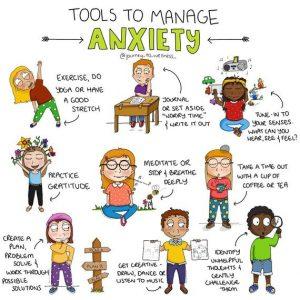In a world where anxiety has become an all-too-familiar companion for many, researchers and healthcare professionals are continually seeking innovative approaches to alleviate its grip. Among these emerging pathways, testosterone therapy is garnering attention, prompting a reevaluation of the connections between hormones and mental health. Traditionally associated with physical vitality and masculine traits, testosterone’s role extends far beyond its conventional boundaries. Recent studies suggest that this hormone may possess the potential to alleviate anxiety symptoms, offering a fresh perspective on treatment options. As we delve into the intricate relationship between testosterone and mental wellness, we begin to uncover the complexities of our biology and the possibilities for transformative therapeutic interventions. Whether you’re a skeptic or a seeker of solutions, join us in exploring the nuances of testosterone therapy as a potential ally in the fight against anxiety.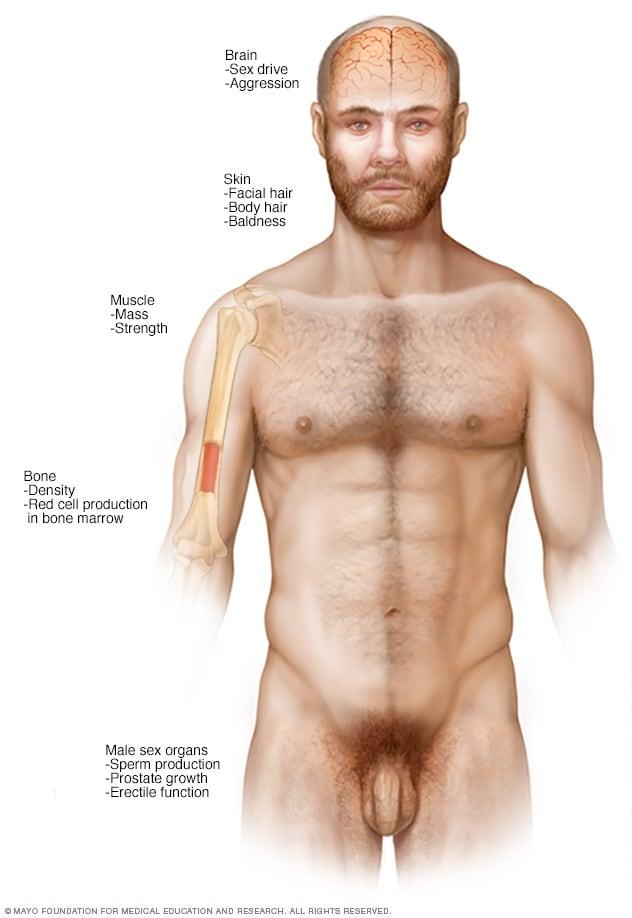
Understanding the Connection Between Testosterone Levels and Anxiety
Testosterone plays a significant role in various bodily functions, including mood regulation and emotional resilience. Studies have shown that lower levels of testosterone can correlate with increased feelings of anxiety, contributing to a cycle where heightened anxiety may, in turn, lower testosterone levels. The relationship between testosterone and mental health is complex, influenced by factors such as age, lifestyle, and underlying health conditions. For instance, men experiencing low testosterone may also report higher incidences of depressive symptoms and anxiety disorders, highlighting a potential bi-directional relationship that necessitates further exploration.
Understanding this connection can aid in developing treatment strategies for anxiety. While there isn’t a one-size-fits-all solution, testosterone therapy could be a beneficial option for some individuals. Consider the following potential benefits of testosterone therapy in relation to anxiety:
- Improved Mood: Increased testosterone levels could lead to enhanced mood and reduced feelings of anxiety.
- Enhanced Confidence: Higher testosterone may foster greater self-esteem and diminished social anxiety.
- Stabilized Energy Levels: With balanced testosterone, individuals may experience better energy management, potentially reducing fatigue-related anxiety.
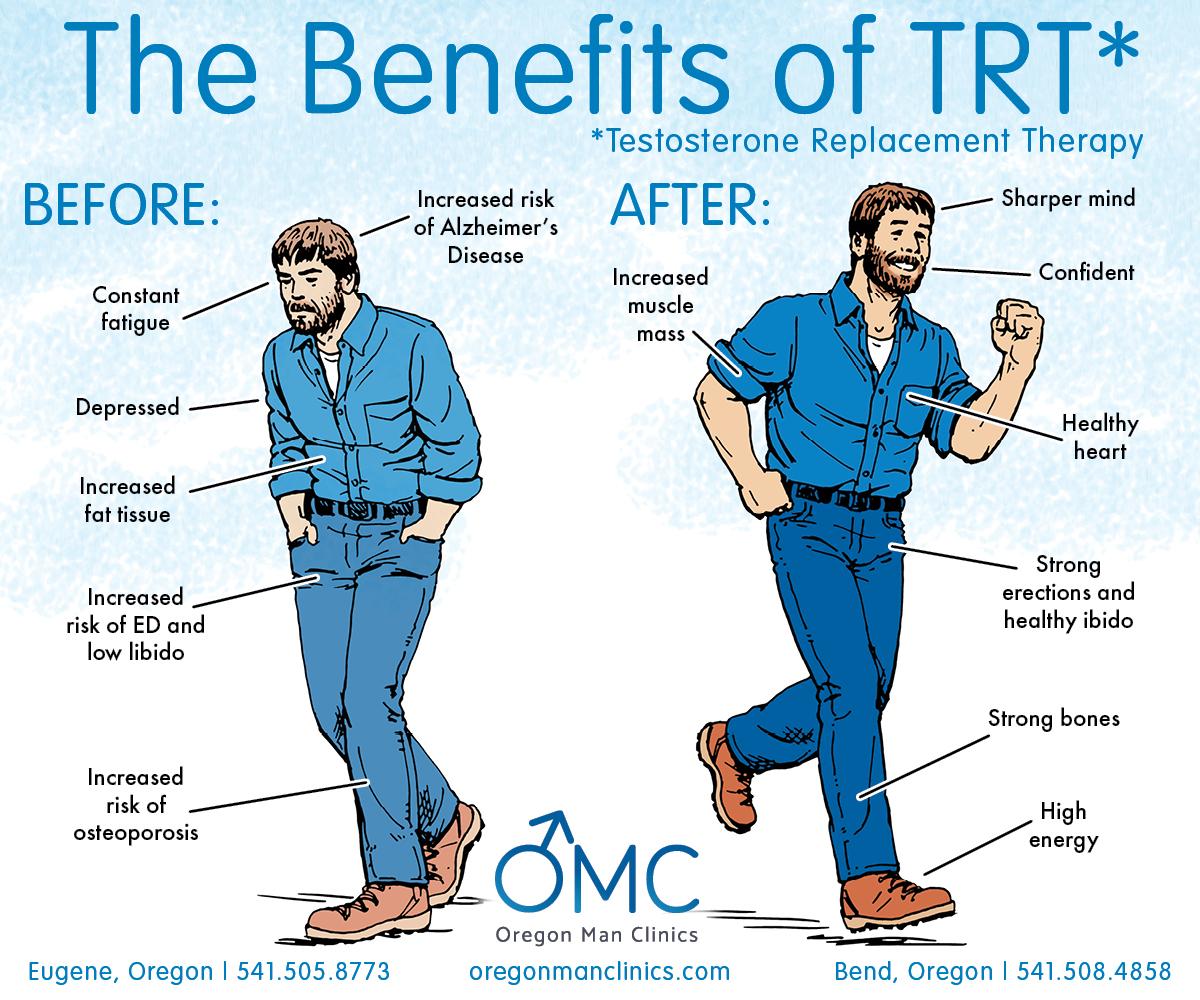
Signs of Testosterone Deficiency: Recognizing the Impact on Mental Health
Testosterone plays a crucial role in regulating mood and emotional well-being. A deficiency in this hormone can lead to various mental health challenges, often presenting in subtle ways that can be easily overlooked. Individuals experiencing low testosterone levels may report feelings of fatigue, irritability, and decreased motivation. Furthermore, such an imbalance can manifest as increased anxiety, depression, and even cognitive decline, which can significantly affect quality of life.
Understanding the signs of testosterone deficiency is essential for anyone who might be experiencing these mental health challenges. Key indicators to watch for include:
- Persistent fatigue: A consistent feeling of exhaustion that doesn’t improve with rest.
- Increased anxiety levels: Heightened feelings of worry and tension that feel overwhelming.
- Emotional instability: Rapid mood swings or unexplained irritability can be signs of hormonal imbalance.
- Decreased libido: A noticeable drop in sexual desire often accompanies low testosterone levels.
All these signs can create a feedback loop where mental health and hormonal levels continuously impact one another. Addressing testosterone deficiency, potentially through therapy, could mitigate these mental health symptoms and lead to improved emotional stability.
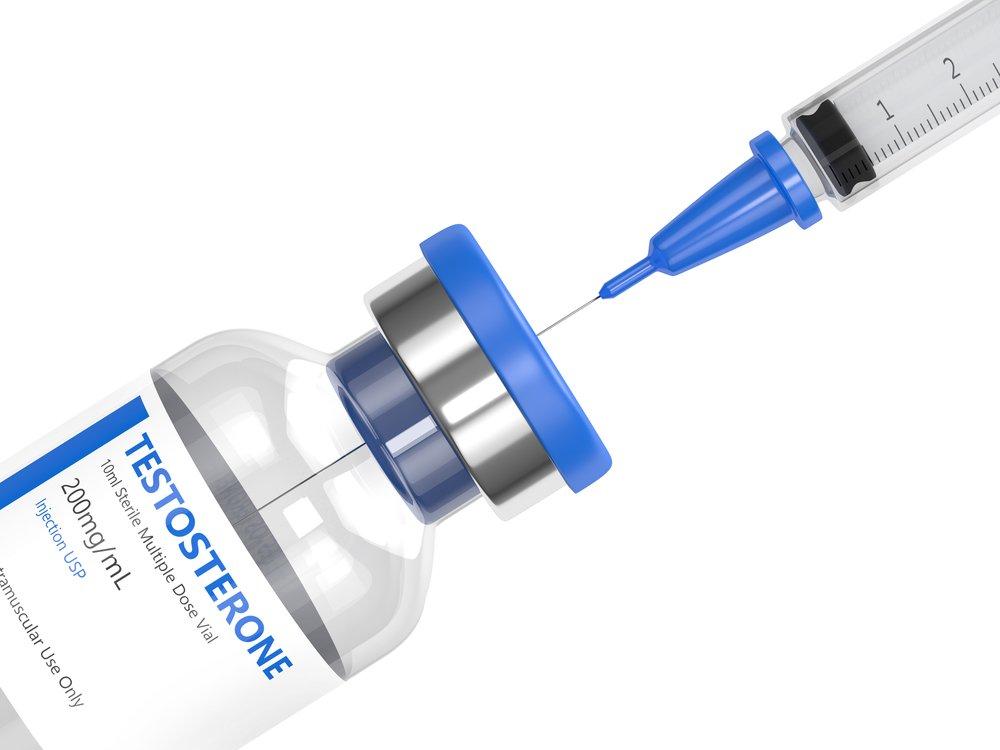
Exploring the Benefits of Testosterone Therapy for Anxiety Relief
Testosterone therapy has emerged as a potential adjunct treatment for individuals struggling with anxiety, illuminating a pathway that intertwines hormonal balance with mental health. Studies suggest that low testosterone levels can contribute to heightened feelings of anxiety and mood disturbances. By restoring these levels, men and women alike may experience a notable reduction in anxiety symptoms. The following benefits highlight the intersection of testosterone therapy and anxiety relief:
- Improvement in Mood: Testosterone plays a crucial role in regulating mood, and increased levels can lead to enhanced emotional stability.
- Increased Energy: Patients often report higher energy levels post-therapy, reducing fatigue, which can exacerbate anxiety.
- Enhanced Cognitive Function: Optimal testosterone levels may improve cognitive clarity and decision-making capabilities, addressing anxiety driven by indecision.
Moreover, testosterone therapy is gaining traction not just for its physiological benefits but also for its psychological implications. When anxiety symptoms recede, individuals often find themselves more capable of engaging in social situations, leading to an improvement in overall life satisfaction. Understanding this relationship may provide healthcare providers with a valuable tool in their approach to treating anxiety disorders. Below are some key takeaways regarding testosterone therapy and its potential impacts:
| Key Factors | Impacts on Anxiety |
|---|---|
| Hormonal Balance | Stabilizes emotional fluctuations |
| Physical Health | Reduces fatigue and lethargy |
| Social Interaction | Improved confidence in social settings |
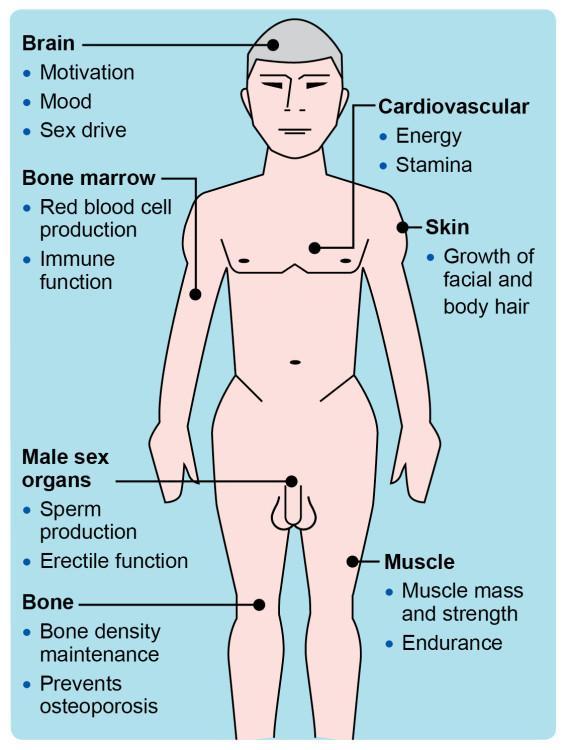
The Science Behind Testosterone and Mood: What Research Reveals
The relationship between testosterone and mood is a complex interplay that has garnered significant attention in scientific research. Studies suggest that testosterone levels may influence mood disorders, particularly anxiety and depression. For instance, a decrease in testosterone has been associated with heightened anxiety levels in both men and women. This correlation raises important questions regarding the potential benefits of testosterone therapy for individuals suffering from anxiety-related conditions. While the exact mechanisms remain an area of ongoing inquiry, it is believed that testosterone contributes to neurotransmitter regulation, particularly serotonin and dopamine, which play crucial roles in mood stabilization.
Importantly, recent research has revealed that testosterone therapy may offer a potential avenue for alleviating symptoms of anxiety. Some clinical studies indicate that individuals undergoing testosterone replacement therapy report an improvement in mood and a reduction in anxiety symptoms. However, the effectiveness can vary based on factors such as age, baseline testosterone levels, and individual health status. To summarize, here are some key findings from current research regarding testosterone’s impact on mood:
- Enhanced mood regulation: Testosterone may enhance mood-regulating neurotransmitters.
- Reduction in anxiety symptoms: Some individuals experience decreased anxiety with therapy.
- Variability in response: Individual responses to therapy can differ widely.
| Study | Findings |
|---|---|
| Smith et al. (2020) | Testosterone therapy leads to decreased anxiety in men with low testosterone. |
| Williams et al. (2021) | Improvement in mood reported following testosterone replacement in women. |
| Johnson et al. (2022) | Diverse responses noted; further research needed to understand patient variability. |
Navigating Treatment Options: Choosing the Right Testosterone Therapy
When considering testosterone therapy, it’s crucial to explore the various options available and identify which aligns best with your individual needs. Common treatment forms include:
- Injections: Typically administered every few weeks, they provide a quick boost in testosterone levels.
- Topical gels: These are applied daily to the skin, allowing for a steady absorption into the bloodstream.
- Patches: Similar to topical gels, patches offer a convenient and consistent method of delivery.
- Pellets: Small pellets are implanted under the skin for slow and sustained release over several months.
Before initiating any treatment, it’s essential to consider several factors:
| Factor | Considerations |
|---|---|
| Age | Age-related hormonal changes can necessitate different approaches. |
| Health conditions | Underlying health issues may influence treatment safety and effectiveness. |
| Personal preferences | Preference for convenience or method of administration can impact adherence. |
Engaging in a detailed discussion with your healthcare provider will help clarify which route is optimal for you. Evaluating these options promotes an informed decision-making process, ensuring that you select a therapy that not only addresses your anxiety but aligns well with your lifestyle and overall health goals.
Potential Risks and Considerations in Testosterone Treatment
While testosterone therapy may offer benefits for managing anxiety, it is crucial to recognize potential risks that could outweigh these advantages. Hormonal treatments can lead to a series of health issues, particularly if not managed carefully. Among these, you might encounter:
- Cardiovascular Concerns: Increased risk of heart problems, including heart attack and stroke.
- Hormonal Imbalance: An excessive level of testosterone can disrupt other hormone levels, leading to complications.
- Prostate Health: Potential enlargement of the prostate, raising concerns for those with pre-existing conditions.
- Behavioral Changes: Heightened aggression or mood swings may occur as a side effect.
Moreover, careful monitoring is necessary to ensure the treatment is appropriate for the individual. Regular blood tests and check-ups can help track the therapy’s impact. It is also essential to discuss any pre-existing conditions with a healthcare provider before starting treatment. Key considerations include:
| Consideration | Description |
|---|---|
| Age | Older patients may be at higher risk of side effects. |
| Existing Medical Conditions | May require careful evaluation before therapy commencement. |
| Medication Interactions | Some medications may interact negatively with testosterone. |
A Holistic Approach: Integrating Testosterone Therapy with Other Mental Health Strategies
Integrating testosterone therapy into a comprehensive mental health strategy can significantly enhance its effectiveness, especially for those grappling with anxiety. This approach recognizes that hormonal balance is just one facet of mental well-being. By incorporating cognitive behavioral therapy (CBT), mindfulness practices, and lifestyle changes, individuals can create a synergistic effect that bolsters their mental resilience. This multi-faceted method allows for a richer, more supportive healing environment, ultimately leading to more stable emotional states.
To clarify the interplay between testosterone therapy and other mental health interventions, consider the following key strategies that can complement the hormonal treatment:
| Strategy | Description |
|---|---|
| Cognitive Behavioral Therapy (CBT) | Helps individuals identify and challenge negative thought patterns. |
| Mindfulness and Meditation | Promotes relaxation and reduces stress, enhancing emotional regulation. |
| Regular Physical Activity | Boosts mood and increases overall physical health, supporting hormonal balance. |
| Nutrition | Incorporating a balanced diet rich in vitamins and minerals can support mental health. |
Q&A
Q: What is testosterone therapy, and how is it related to anxiety?
A: Testosterone therapy involves administering testosterone, a hormone primarily associated with male traits, to individuals who have low levels of this hormone. Much research has emerged around the effects of testosterone on mood and mental health, suggesting that hormonal imbalances can play a role in the development or exacerbation of anxiety disorders. While testosterone is often linked to physiological changes, it may also influence emotional well-being.
Q: Who might benefit from testosterone therapy for anxiety?
A: Individuals with clinically low testosterone levels, often identified through blood tests, may find relief from anxiety symptoms through therapy. This may include both men and women, as low testosterone levels can occur in various populations. However, it’s essential to undergo a comprehensive evaluation by a healthcare provider before pursuing this treatment to discern whether hormonal therapy is appropriate for the individual’s specific situation.
Q: How does testosterone impact anxiety levels?
A: Testosterone is believed to affect mood through various pathways, including the modulation of neurotransmitters—like serotonin and dopamine—known to influence feelings of anxiety and depression. Moreover, a balanced testosterone level can contribute to improved resilience to stress and an overall sense of well-being. However, it’s crucial to note that the effects can vary widely among individuals.
Q: Are there risks associated with testosterone therapy?
A: Yes, like any medical treatment, testosterone therapy is not without potential risks. Side effects can include acne, sleep apnea, increased risk of blood clots, and changes in cholesterol levels. Additionally, for individuals with certain health conditions, such as prostate issues or heart disease, testosterone therapy may not be advisable. It’s vital to discuss these risks with a healthcare professional to make an informed decision.
Q: Can testosterone therapy replace traditional anxiety treatments?
A: Testosterone therapy is not a substitute for conventional anxiety treatments, such as therapy or medications like SSRIs. Instead, it may serve as a complementary option for those who have confirmed low testosterone levels and may experience concurrent anxiety symptoms. A comprehensive treatment plan should be tailored to the individual’s needs, often integrating multiple therapeutic approaches.
Q: How can someone determine whether they need testosterone therapy?
A: If individuals experience symptoms like fatigue, mood swings, or heightened anxiety that don’t respond to typical anxiety treatments, it may be prudent to consult a healthcare professional. A thorough evaluation, including a discussion of symptoms and blood tests to measure hormone levels, will provide critical insights into whether testosterone therapy might be beneficial.
Q: What are some alternative approaches to managing anxiety?
A: Beyond testosterone therapy, there are numerous strategies for managing anxiety. These include psychotherapy (such as cognitive-behavioral therapy), mindfulness practices, regular exercise, a balanced diet, and stress management techniques. Often, a multi-faceted approach that addresses lifestyle changes alongside any medical treatments is the most effective way to combat anxiety.
Q: Should I self-medicate with testosterone?
A: Absolutely not. Self-medicating with testosterone or any other hormone can lead to serious health issues and exacerbation of symptoms. It’s essential to seek professional guidance to ensure that any treatment, including hormone therapy, is safe, appropriate, and monitored by a qualified healthcare provider. This ensures both safety and efficacy for the individual’s mental health journey.
Concluding Remarks
the intricate relationship between testosterone levels and anxiety presents a compelling avenue for both research and potential therapeutic interventions. As we navigate the complexities of mental health, it’s crucial to recognize that while testosterone therapy may offer hope for some, it is not a panacea. The nuances of individual biochemistry and psychological factors underscore the importance of a holistic approach to treatment that encompasses therapy, lifestyle changes, and, when appropriate, medical interventions. As the scientific community continues to unravel the mysteries of hormonal influences on our emotional well-being, patients and practitioners alike are encouraged to stay informed and engaged in discussions that promote personalized care. Ultimately, the journey toward managing anxiety may be multifaceted, but with an open mind and a commitment to understanding, we can illuminate pathways to better mental health for all.

